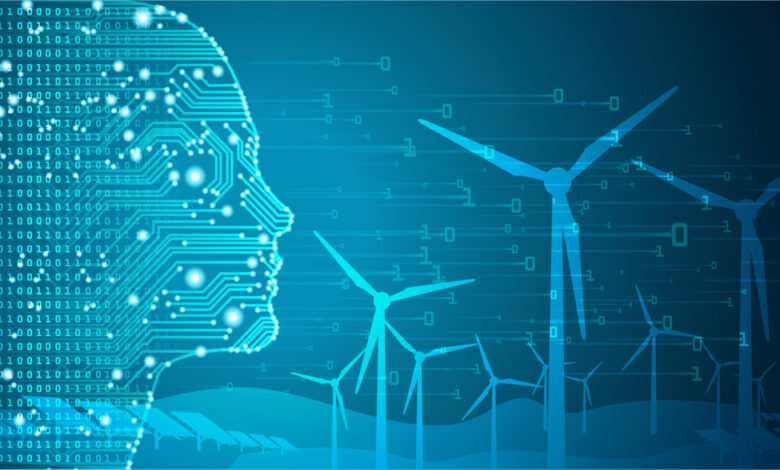The Role of Artificial Intelligence in Optimizing Energy Systems
The Role of Artificial Intelligence in Optimizing Energy Systems

In recent years, the world has witnessed a growing urgency to transition towards sustainable energy systems to mitigate the adverse effects of climate change and reduce dependency on finite fossil fuels such as oil and gas. The integration of renewable energy sources into the power sector has become crucial for achieving these objectives. As renewable energy technologies continue to advance, so does the need for more sophisticated and efficient methods to manage and optimize energy systems. Artificial Intelligence (AI) has emerged as a powerful tool in this context, offering innovative solutions to enhance the integration and utilization of renewable energy, improve energy efficiency, and tackle climate change. This article explores the role of Artificial Intelligence in optimizing energy systems with a focus on renewable energy, oil and gas, and the power sector.
Understanding the Need for Energy System Optimization
The urgent need to optimize energy systems has become paramount in the face of escalating challenges posed by climate change, the depletion of finite resources like oil and gas, and the quest for sustainable solutions in the power sector. As the world increasingly embraces renewable energy sources, the integration of these intermittent resources necessitates innovative strategies to ensure a reliable and resilient energy supply.
This is where Artificial Intelligence (AI) plays a crucial role. AI-driven technologies offer unparalleled capabilities in analyzing vast amounts of data, forecasting renewable energy generation, and enhancing energy efficiency in power generation and distribution. By leveraging AI’s predictive capabilities, energy operators can efficiently manage energy storage, intelligently balance supply and demand, and optimize the integration of renewables into existing grids. Embracing AI in energy systems holds the key to creating a cleaner, more efficient, and climate-conscious energy future.
AI-Driven Forecasting for Renewable Energy Generation
In the pursuit of a sustainable and low-carbon energy landscape, the efficient utilization of renewable energy sources is paramount. However, the inherent variability of renewable resources, such as solar and wind power, poses significant challenges for grid stability and energy management. Here, Artificial Intelligence (AI) emerges as a powerful tool to address these complexities. AI-driven forecasting models can harness historical and real-time data, including weather patterns, solar irradiation, wind speeds, and other relevant variables, to accurately predict renewable energy generation.
By leveraging machine learning algorithms, energy operators can anticipate fluctuations in renewable energy output, enabling proactive planning for energy storage, grid balancing, and demand-response strategies. This not only enhances the reliability and efficiency of renewable energy integration but also facilitates the reduction of greenhouse gas emissions, making AI-driven forecasting an indispensable component of optimizing energy systems in the context of climate change mitigation.
Enhancing Energy Efficiency in the Power Sector
As the global focus intensifies on reducing carbon emissions and achieving sustainability goals, optimizing energy efficiency in the power sector becomes paramount. The power sector, encompassing both renewable energy and conventional sources like oil and gas, plays a pivotal role in shaping the future of energy consumption. Artificial Intelligence (AI) offers transformative solutions in this domain by enabling intelligent analysis and optimization of energy generation, distribution, and consumption processes. AI-driven algorithms can analyze vast amounts of data from power plants and grids to identify inefficiencies and operational bottlenecks.
Through predictive maintenance, AI can proactively detect equipment failures and optimize power generation to maximize efficiency. Additionally, AI can facilitate demand response and load management programs to balance electricity demand, reducing reliance on fossil fuel-based power plants during peak periods. Embracing AI to enhance energy efficiency in the power sector can significantly contribute to climate change mitigation efforts and create a more sustainable energy landscape for the future.
AI-Enabled Demand Response and Load Management
In the pursuit of a more sustainable and resilient energy system, demand response and load management play a vital role in balancing electricity consumption and generation. The integration of renewable energy sources, alongside conventional oil and gas-based power, introduces variability and intermittency in energy supply, making demand response essential. Artificial Intelligence (AI) offers innovative solutions to optimize demand response and load management programs.
By leveraging AI algorithms to analyze consumption patterns and real-time data, energy operators can predict peak demand periods and incentivize consumers to shift their electricity usage to off-peak hours. AI-driven load management systems can dynamically adjust energy consumption, enabling more efficient grid operations and reducing the need to rely on fossil fuel-based power plants during high-demand periods. Implementing AI-enabled demand response and load management not only enhances grid stability but also contributes to reducing greenhouse gas emissions, thus accelerating the transition towards a greener and more sustainable power sector.
Optimal Integration of Renewable Energy into Existing Grids
As the world moves towards a more sustainable and renewable energy future, the integration of renewable energy sources into existing power grids becomes a critical challenge. The successful incorporation of renewable energy, alongside traditional oil and gas-based power, requires careful planning and optimization to ensure a stable and efficient energy system. Artificial Intelligence (AI) plays a pivotal role in this process by providing advanced data analytics and optimization techniques.
AI-driven algorithms can analyze grid capacity, consumption patterns, weather data, and transmission constraints to determine the most suitable locations for deploying renewable energy assets, such as solar panels and wind turbines. By optimizing the placement and operation of renewable energy infrastructure, AI ensures maximum utilization of clean energy while minimizing transmission losses and grid instability. Embracing AI in the optimal integration of renewable energy into existing grids is essential to accelerate the global transition to sustainable energy and combat climate change effectively.
AI Applications in Oil and Gas Sector
The oil and gas industry, while transitioning towards sustainable practices, continues to be a significant player in meeting global energy demands. However, in this context, Artificial Intelligence (AI) has emerged as a transformative technology with various applications in the sector. AI can optimize operations, enhance efficiency, and reduce the environmental impact of oil and gas extraction and production processes. Moreover, AI-driven predictive maintenance allows early detection of equipment failures, minimizing downtime, and improving safety.
Moreover, AI can optimize drilling processes and reservoir management, leading to increased recovery rates and reduced environmental footprint. Additionally, AI-enabled data analytics can aid in the identification of opportunities for emissions reduction and energy efficiency improvements. By embracing AI applications, the oil and gas sector can advance towards more sustainable and responsible practices. As a result, it can contribute significantly to the broader efforts in mitigating climate change and fostering a cleaner energy future.
AI and Climate Change Mitigation
Climate change mitigation stands as one of the most urgent global challenges of our time, demanding innovative solutions across various sectors, including energy. Artificial Intelligence (AI) has emerged as a powerful ally in the fight against climate change, playing a pivotal role in optimizing energy systems. Through AI-driven analytics and decision-making processes, renewable energy sources can be harnessed more effectively, reducing dependency on fossil fuels like oil and gas. Moreover, AI facilitates accurate monitoring and management of emissions, thereby aiding in the identification of opportunities for emissions reduction and energy efficiency improvements.
Furthermore, AI technologies enable the development and deployment of renewable energy solutions on a global scale, accelerating the transition towards a low-carbon future. By integrating AI into energy systems, we can advance climate change mitigation efforts, reduce greenhouse gas emissions, and foster a more sustainable and resilient energy landscape for future generations.
Conclusion
The optimization of energy systems is vital for achieving a sustainable and climate-friendly energy future. As renewable energy, oil and gas, and the power sector continue to evolve, AI emerges as a key enabler in tackling the challenges associated with these domains. From accurate forecasting of renewable energy generation to enhancing energy efficiency and enabling demand response programs, AI offers multifaceted solutions to transform the energy landscape. Embracing AI’s potential and integrating it into energy systems will not only enhance operational efficiency but also contribute significantly to global efforts to combat climate change. The convergence of AI and renewable energy holds great promise for a greener, cleaner, and more sustainable world.




